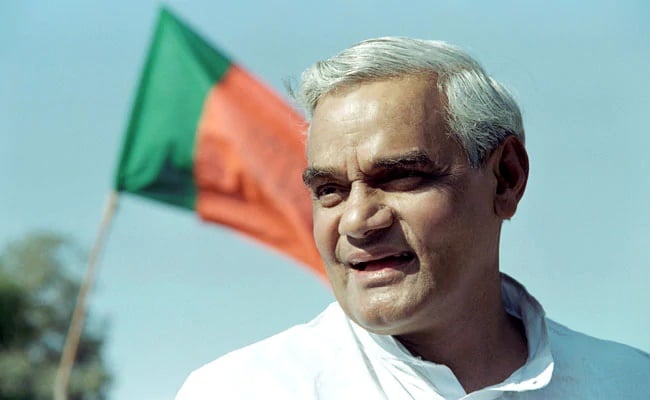In 2002, former Prime Minister Atal Bihari Vajpayee rejected suggestions from his advisors to accept the role of President instead of continuing as Prime Minister, on the grounds that such a transition would set a “very dangerous precedent” within India’s parliamentary democracy. This revelation comes from a new book authored by his media adviser, Ashok Tandon.
The book, titled “The Reverse Swing: Colonialism to Cooperation,” provides an insider’s account of Vajpayee’s tenure and his decisions. Ashok Tandon, who served as the head of media relations in the Vajpayee Prime Minister’s Office from 1998 to 2004, highlights this significant moment in Indian political history.
Tandon’s book, set to be launched on October 18 by Hardeep Singh Puri, Union Minister of Petroleum and Natural Gas, and Housing and Urban Affairs, contains stories from his time in the PMO, under a section titled “From the Author’s Personal Diary.”
Tandon recounts the episode when suggestions were made within Vajpayee’s team to nominate him as the presidential candidate for the National Democratic Alliance (NDA). However, Vajpayee rejected these proposals and expressed his concerns over a sitting Prime Minister assuming the role of President, especially if elected by a majority in the Electoral College. He believed that this move would set a dangerous precedent for India’s parliamentary democracy.
With two years still remaining in his term as Prime Minister, Vajpayee later took the initiative to consult with Congress leaders in an effort to reach a consensus on the choice for the President’s post.
During this meeting, he disclosed, for the first time, the NDA’s decision to nominate Dr A P J Abdul Kalam as their presidential candidate, which took the Congress leaders by surprise.
“I remember, Sonia Gandhi, Pranab Mukherjee and Dr Manmohan Singh came to meet him. Vajpayee virtually surprised them by disclosing officially for the first time that the NDA had decided to field Dr A P J Abdul Kalam for the Presidential election,” Tandon writes.
“There was a pin-drop silence for a few seconds. Sonia Gandhi broke the ice and said ‘We are flabbergasted by your choice. We have no option but to support him. But will discuss your proposal and take a decision.’ The rest is history.”
Mulayam Singh Yadav, the leader of the Samajwadi Party, also expressed his support for Dr Kalam as the candidate, declaring, “Dr. Kalam is my choice.”
Also Read: Madhya Pradesh Elections 2023: Full list of Congress candidates
Tandon’s book further reveals that before Dr Kalam’s name was officially announced, there were speculations regarding the potential candidacy of the then Maharashtra Governor, Dr P C Alexander.
Some individuals, close to Vajpayee, had been in contact with Dr Alexander, suggesting that his candidacy, as a Christian, would hinder Sonia Gandhi’s prospects of becoming Prime Minister in the future.
This was based on the assumption that having Christians in both the positions of President and Prime Minister would be considered controversial for the country.


